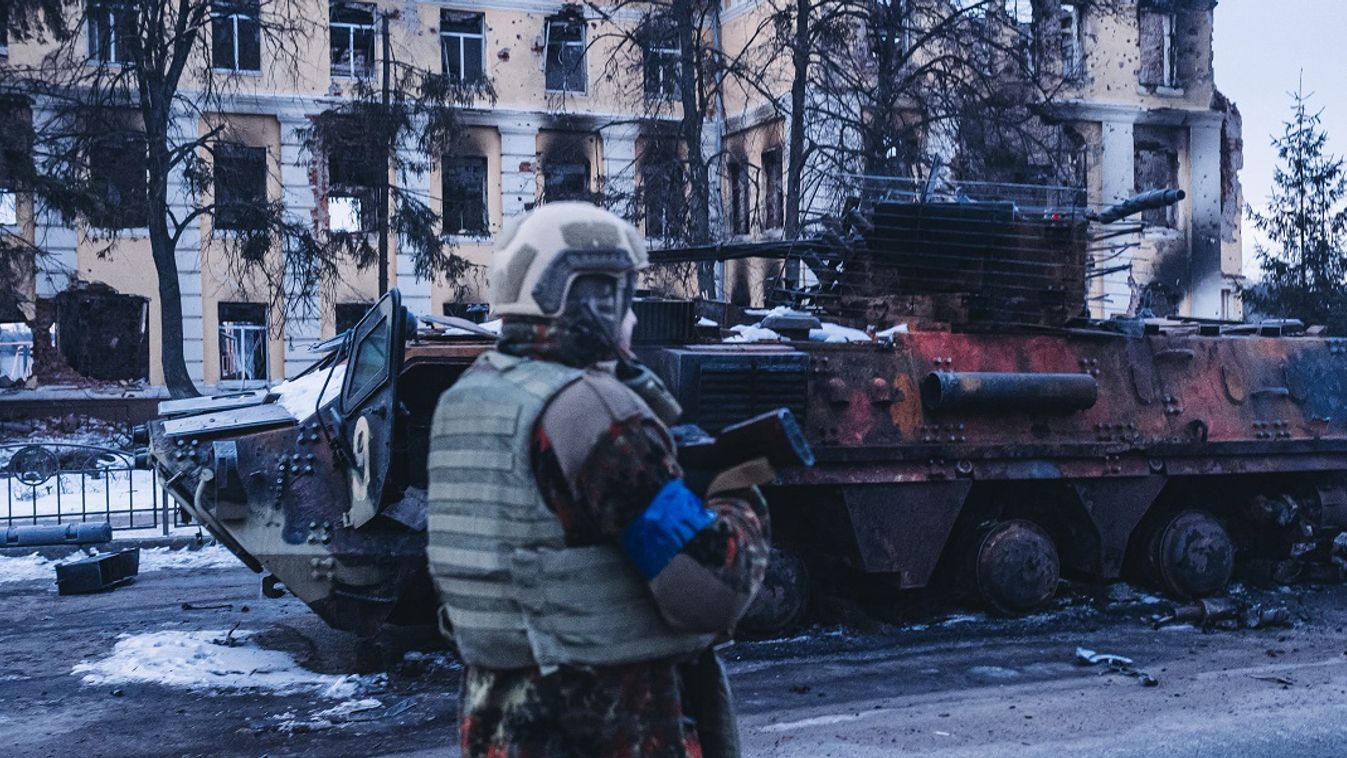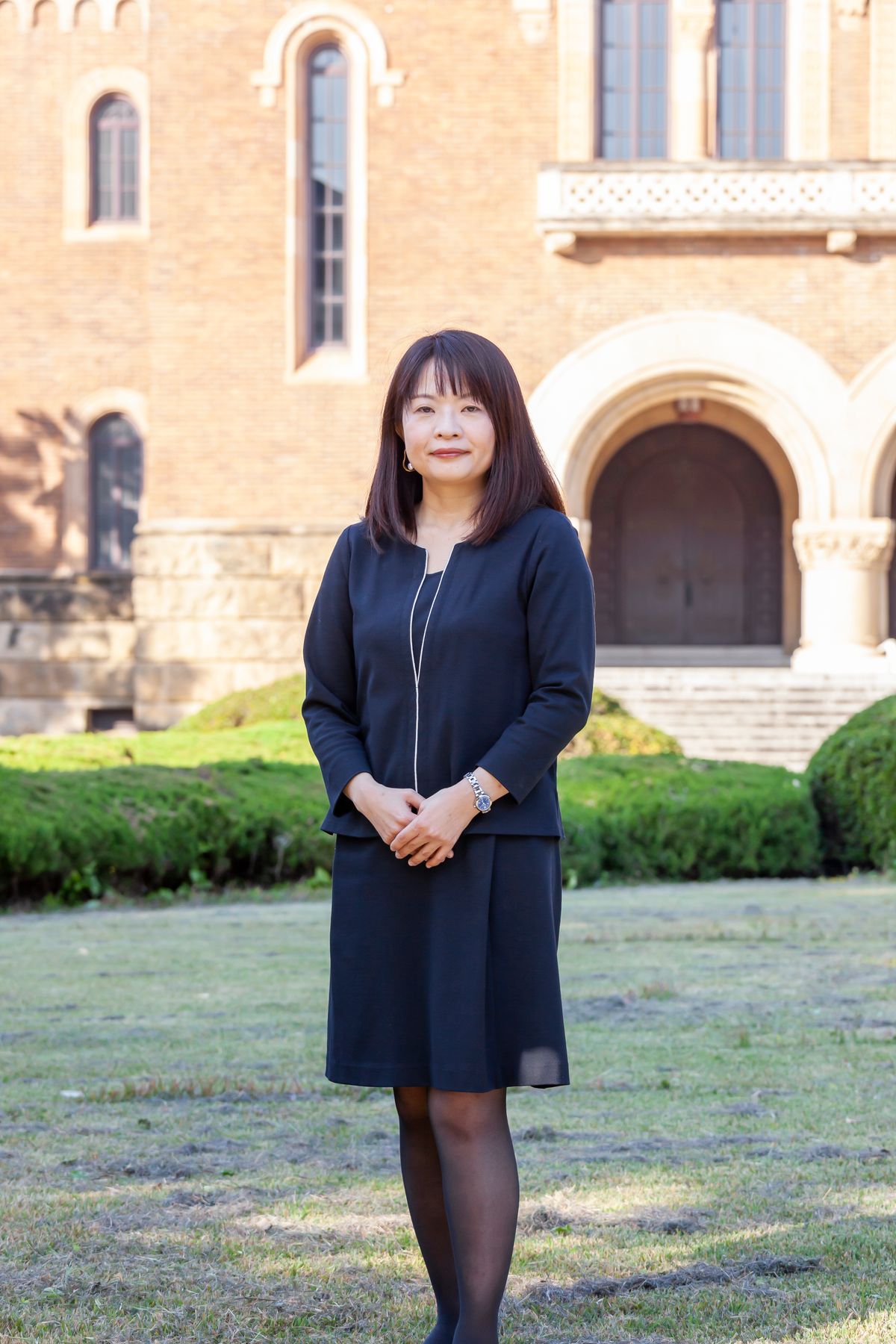Ez is napvilágot látott: Magyar Péter tudhatta, milyen bosszút forralnak Magyarország ellen

A szakértő szerint közölték a Tisza Párt elnökével, mi a feltétele a hivatalban maradásának.

The Ukrainian declaration to legally accept the ICC’s jurisdiction is the legal basis for the ICC Prosecutor to proceed with opening an investigation into this situation. However, it will be quite difficult to detain suspects from uncooperative Non-State Parties as long as they remain in the non-State party in question – Professor Hitomi Takumera pointed out in a conversation about the international legal aspect of the Russia-Ukraine war.

The conflict between Russia and Ukraine culminated into a full-scale and still ongoing war after the Russian attack in February. Besides the geopolitical and security considerations, the war of course concerns many areas of international public law. Let’s begin our conversation with the attack itself. International lawyers unanimously agree that the act of Russia is unjustified and amounts to a so-called aggression that violates the fundamental principles of international law. However, Russia made several attempts to justify its acts and referred to self-defense and humanitarian intervention as legitimate exceptions to the general ban on the use of force or the “jus contra bellum”. Are there any historical precedents of this claim? How do you see this case from a legal standpoint?
While the use of force based on the right of individual or collective self-defense is recognized both under the UN Charter and under customary law, humanitarian intervention is not explicitly recognized under the UN Charter. As long as the right of self-defense is a right expressly recognized by a State, a State is exceptionally allowed to use force if it asserts the exercise of this right in accordance with the requirements under customary international law, including an armed attack or imminent threat and proportionality. Russia's assertion that it will use force against Ukraine could be read either as an exercise of its individual or collective right of self-defense against the Luhansk and Donetsk People's Republics, which Russia recognizes as States. Many scholars are skeptical about Russia's claim of collective self-defense, since the States that have requested the invocation of collective self-defense in the first place are not recognized by most of the States, the international community. As for the claim of individual self-defense, there seems to be no evidence of armed attack against Russia by Ukraine or NATO, and it is also questionable whether there is an imminent threat of armed attack from these countries. It may be rare for both the right of self-defense and humanitarian intervention to be asserted, because the former is good enough to justify the use of force. It is also rare that humanitarian intervention by a single State is seen as legal by the international community. However, Russia has asserted both self-defense and humanitarian intervention when it used force in South Ossetia in 2008 and in Crimea in 2014. Regarding humanitarian intervention, the international community sees state practice of justifying military action based on humanitarian intervention when military action could not have been authorized by the UN Security Council. Typically known is the NATO bombing of the former Yugoslavia in March 1999. The United Kingdom also used humanitarian intervention as the basis for its airstrikes on Syria in 2018. On the one hand,

humanitarian intervention lacks explicit provisions in international law, that is why its requirements are not clear.
On the other hand, the right to self-defense requires that the requirements of urgency, necessity, and proportionality be met, and whether these requirements are met will be questioned during and after the right to self-defense is exercised.

Let’s turn to the U.N. Security Council that is the key institution for the maintenance of international peace and security. In the present case the Security Council is facing with an aggression, the very thing against which this collective security mechanism was once established. Article 24 of the Charter says that “[i]n discharging these duties the Security Council shall act in accordance with the Purposes and Principles of the United Nations.” The Council, however, has been paralyzed in the face of the Russian veto. I am kindly wondering whether the Charter itself can limit the veto power. What are the previous examples?
In my view, the UN Charter itself cannot be interpreted to limit the veto power, because the UN Charter gives the permanent members of the UN Council a veto power. While the veto power cannot be limited, a mechanism was created during the Korean War of 1950 to allow
the UN General Assembly to act on behalf of the Security Council when the Council is paralyzed by a veto.
In 1950, the General Assembly adopted resolution 377 A (V), named “Uniting for Peace”. The adoption of this resolution came as a response to the strategy of the Union of Soviet Socialist Republics (USSR) to prevent the Security Council to make any decision. This resolution enables the General Assembly to act to maintain or restore international peace and security, if the Security Council fails to perform its primary responsibility to maintain or restore international peace and security. This could be another route for the UN to take collective measures against atrocities, but at the same time, this “Uniting for Peace” resolution could
threaten the delicate balance of power provided for in the UN Charter, if it is used for a military action imposed by the UN General Assembly without the Security Council authorization.
Therefore, under the current UN Charter, UN military action based on this resolution would likely violate the UN Charter. Under the current UN Charter, UN military action based on this resolution would likely violate the UN Charter. In 2013, France proposed a code of conduct for the use of veto in the Security Council in situations of genocide, war crimes, crimes against humanity and ethnic cleansing. This proposal resulted in a “Code of Conduct regarding Security Council action against genocide, crimes against humanity and war crimes” in October 2015, which was submitted to the UN Secretary General and opened to all UN Member States. More than one hundred supporters of this Code of Conduct, including France and the UK, have pledged to take decisive action against atrocity crimes and, while serving as members of the UN Security Council, not to vote against credible resolutions to that end. In the current situation, perhaps it sounds mere cynicism, but we may have to hope that voluntary veto regulations will be effective.
The reform of the U.N. Security Council has been on the table for quite some time and there are several reform efforts. Which one would you prefer?
While amendments of the UN Charter are desirable, it would be impractical to make amendments that would threaten the vested rights of the current permanent members of the UN Security Council, since ratification by all P5 of the Security Council is a requirement under Article 108 in order to amend the UN Charter. And even if the current UN Charter is outdated, drafted on the basis of the post-World War II order, we should not forget the fact that it has effectively prevented nuclear war and World War III to date. This fact implies that the veto system under the UN Charter has shown a certain degree of effectiveness in preventing all-out military confrontation between the major powers, and that it has become a cooling device for the friction between the major powers. The above approach can be said to be optimistic or positive about the status quo. However, given the difficulty of abolishing the veto, which is a vested right, the
UN Charter should include restrictions on the use of the veto and provide for a “right of veto” in the event that the veto is exercised against a situation of serious human rights violations by one or more countries.
It would be more practical to specify the role of the UN General Assembly, such as Unity for Peace in the UN Charter. I do not have strong opinion about the proposal to increase the number of permanent members of the Security Council, but the reform would be meaningless unless it prevents further paralysis of the Security Council.
Let’s turn to the question of individual legal responsibilities both for the aggression as well as for the acts that violate the so-called “jus in bello”. Neither Russia nor Ukraine officially ratified the Rome Statute of the International Criminal Court. Because of the veto power it is unlikely that the Security Council would set up a special tribunal. What are the chances of international criminal investigation. Can the ICC proceed on some other grounds?
In the past, Ukraine declared to legally accept the Court's jurisdiction over alleged crimes under the Rome Statute occurring on its territory from February 2014 onwards. This is the legal basis for the ICC Prosecutor to proceed with opening an investigation into the situation in Ukraine. Under the ICC Statute,
there are three patterns of possibilities for the ICC to investigate situations relating to Non-State Parties:
first, when a situation of Non-State Party is referred by the UN Security Council acting under Chapter VII of the UN Charter (Article 13 (b)); second, when a case is referred by a State Party for a crime committed by a national of a Non-State Party within the territory of the State Party or within the vessel/aircraft registered to the State Party or by the Prosecutor (Article 12 (2)(a)); and third, as in this case of Ukraine, a non-State Party may make a declaration accepting the jurisdiction of the ICC with respect to the crimes at issue (Article 12(3)). As the ICC Prosecutor pointed out, Ukraine made two declarations in 2014 and 2015 respectively: ‘The first declaration lodged by the Government of Ukraine accepted ICC jurisdiction with respect to alleged crimes committed on Ukrainian territory from 21 November 2013 to 22 February 2014. The second declaration extended this period on an open-ended basis to encompass ongoing alleged crimes committed throughout the territory of Ukraine from 20 February 2014 onwards. Since this second declaration authorizes the exercise of the ICC's jurisdiction with respect to crimes committed in Ukraine after February 2014, the ICC's Chief Prosecutor has decided to open an investigation upon receipt of a situation referral from Lithuania and from 38 parties, including the United Kingdom. For the time being, however, the ICC Office of the Prosecutor will be trying to wade through social networking evidence, such as posted videos, testimonies of victims in neighboring countries, reports by the UN or NGOs, because it is not easy to conduct investigations in conflict areas where the use of force is currently underway. In addition, since it will be quite difficult to detain suspects from uncooperative Non-State Parties as long as they remain in the non-State party in question, it will be more realistic to first detain and prosecute relatively lower-level leaders who have fled to neighboring countries as refugees. In any case, of course, war crimes, crimes against humanity, and genocide by both parties to the armed conflict shall be impartially investigated.
What other venues of international criminal procedure is possible in your view?
The ICC cannot investigate crimes of aggression this time because neither Ukraine nor Russia is a member of the ICC Statute and is not in a position to accept the amendment of the crime of aggression so that there is a proposal to establish a special tribunal where States can quickly punish crimes of aggression under an agreement, as proposed by the former British Prime Minister Brown. However, even if a special tribunal is established, its effectiveness is doubtful if the current regime in the aggressor State remains in power. Since the principle of complementarity is a founding principle in the ICC framework, and crimes under the jurisdiction of the ICC are primarily to be investigated and prosecuted by its States Parties, the ICC States Parties may contribute to investigate and prosecute the crimes under the ICC jurisdiction in the territory of Ukraine. Thus, it would be a realistic possibility that crimes under international law could be tried domestically in the States where they may exercise universal jurisdiction over crimes under international law in accordance with their national laws, especially the crime of aggression, crimes against humanity or war crimes. In that case, as with the ICC investigation and prosecution, it would still be difficult to take into custody the higher-ups who planned the crime of aggression, and it is likely that the actual perpetrators who committed war crimes or crimes against humanity would be the first targets of prosecution.